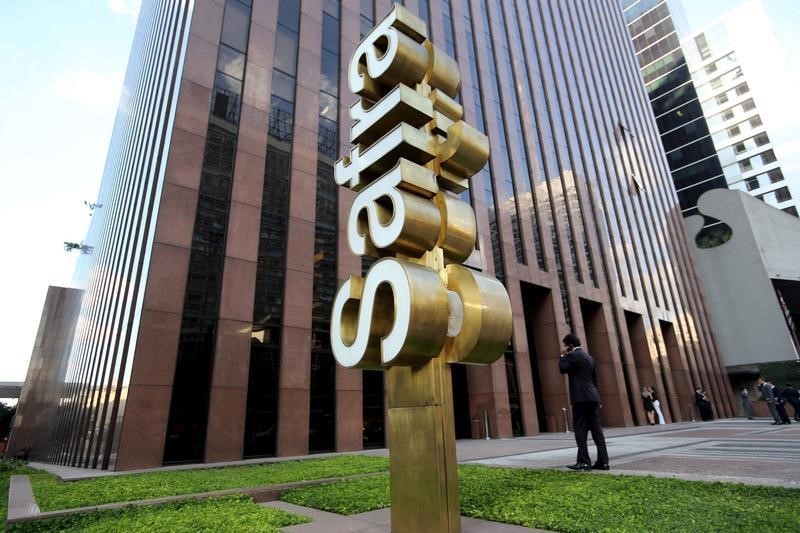(Bloomberg) -- Joseph Safra became the world’s richest banker by transforming a Brazilian lender into a global multibillion-dollar empire.
Now, after a long illness and death at 82, it falls to the next Safra generation.
What’s at stake is a conglomerate which comprises Banco Safra SA, Safra National Bank of New York and Switzerland’s J Safra Sarasin -- firms with about $85 billion in banking assets. There’s also a $2.3 billion real estate portfolio, that includes the Gherkin in London and 660 Madison Avenue in New York, a stake in banana company Chiquita Brands International and a 130-room mansion in Sao Paulo.
Together, his four children and widow stand to inherit a fortune estimated at around $17.6 billion, according to the Bloomberg Billionaires Index.
The succession comes as the global pandemic has roiled markets and accelerated shifts that are upending traditional businesses, such as banking and real estate. Brazil has been particularly hard hit, with the world’s second-highest number of Covid deaths. The Safras -- famous for their cautious approach to business -- also have to contend with competition from upstart firms and foreign banks over wealthy clients.
“Safra’s importance in the financial system is smaller today then it once was. Other banks outgrew it,” said Rafael Schiozer, a professor of Finance at Fundacao Getulio Vargas. “The family now faces challenges both in defining a strategy for its businesses and who will control them.
Safra “leaves a legacy that will be followed by many generations,” according to a statement from Banco Safra on Thursday that said he died of natural causes. The bank didn’t respond to a message seeking further comment.
The Safra dynasty traces its origins to the Ottoman Empire, when it financed camel-caravan traders, and has endured global and family crises.
Joseph Safra was born in 1938, in Beirut, Lebanon, to a Jewish banking clan with roots in Aleppo, Syria. His father, Jacob, moved the family to Brazil after World War II and Banco Safra was established in 1957. He and his brother Moise ran the Brazilian business, after their elder brother, Edmond, had broken off years before to build his own banks in Europe and New York.
Edmond, who later sold the business to HSBC Holdings Plc (LON:HSBA), died in 1999 as a victim of arson in Monaco.
In Brazil, Joseph and Moise grew the bank into one of Latin America’s biggest, catering to the country’s wealthiest people and most prominent companies. The business was known for its soundness, withstanding the many turbulences its home nation threw at it.
Jacob Safra famously said: “If you choose to sail upon the seas of banking, build your bank as you would your boat, with the strength to sail safely through any storm.”
It also had misteps, including in 2009 after the group was linked to a feeder fund for Bernie Madoff, who orchestrated a $17.5 billion Ponzi scheme.
Joseph and Moise split in the 2000s, when a falling out between the two led Joseph to create a rival lender across the street from his family’s, J Safra, and started poaching clients. To end the dispute, Moise sold his share of the family business to Joseph in 2006 for a reported $2.5 billion and left the bank.
Joseph Safra, who had parkinson’s disease, did make arrangements for his succession. His children Jacob, David, Alberto and Esther were all granted shares of the family’s main asset, Banco Safra, last December, according to a regulatory filing. Two of his sons already have central roles within the group, with Jacob running the international side of the operations, while David oversees the Brazilian firm.
Joseph’s middle son, Alberto, departed from the board of his family lender in 2019, due “exclusively to his personal intent of dedicating himself to another project with the family,” according to a memo sent by Safra at the time. Alberto kept his stake at Grupo J. Safra and created ASA Investments. Joseph’s daughter, Esther, is an educator and was never involved with the bank.
“Joseph, Moise and Edmond had their differences at their time, disagreeing on how to handle the business, and the next generation might have their disagreements too,” said Rodrigo Marcatti, a former Safra employee who’s now chief executive of Veedha Investimentos.
The younger Safras are already making their mark. The Brazilian unit, built to serve the wealthy and the nation’s biggest firms, ventured into retail banking this year. In October it launched AgZero, a digital bank with no branches, while beefing up a digital investment platform under the SafraInvest brand. Notoriously low-profile, the lender has invested more on marketing.
There are also subtler changes. Last year, David was seated arm-in-arm with the rest of the nation’s banking elite at a year-end luncheon hosted by the Brazilian federation of banks. At those sorts of events, Banco Safra was usually represented by a high-ranking executive, not a family member -- Joseph was incredibly media shy, rarely gave interviews and avoided public events. David’s presence was seen as a show of force within the firm.
“Safra was always a traditional bank, but being traditional doesn’t mean it’s not evolving,” Schiozer said. “What differentiates it is that Safra is seen as safe, no one is afraid of doing businesses with it.
©2020 Bloomberg L.P.
